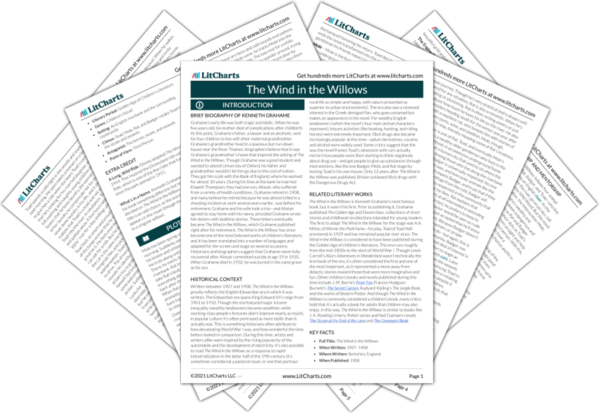Toad saying that boating is a waste of time probably offends Rat, given that he previously said boating is the only thing worth doing. But again, Toad doesn’t seem to care that he might be offending his friend; what matters to him that
he has new hobby, and that
he has fun. This passage also characterizes Toad as entitled, as he announces that they’re all leaving on a trip this afternoon without even asking Rat and Mole if they’d like to come. He expects them to go along with what
he wants, with no regard for what
they might want.


